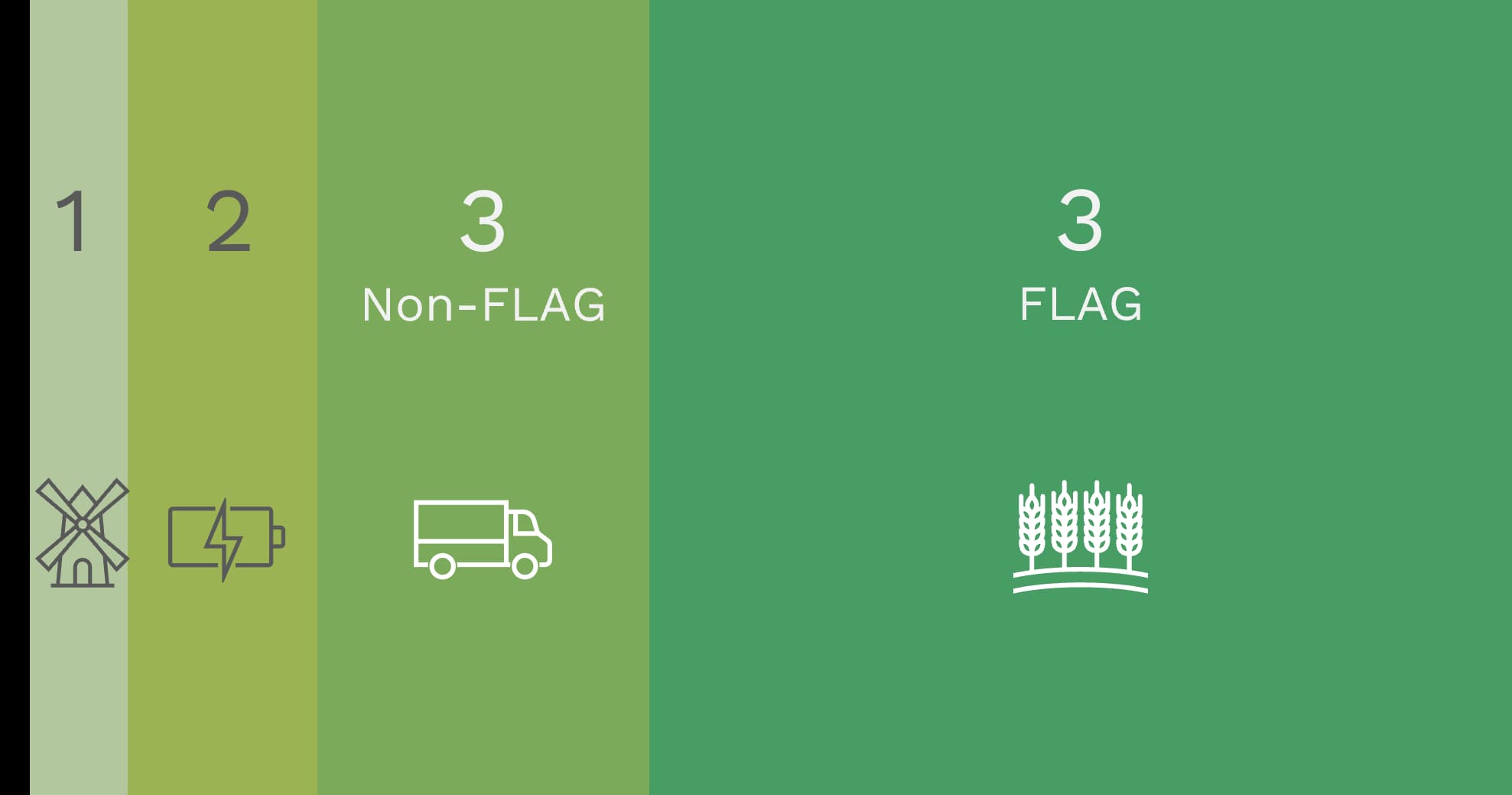Grow wheat, build trust
A new, custom standard aligns processes and strengthens the framework within which all stakeholders operate. Moreover, it guarantees overview and brings insights throughout the entire value chain of wheat production. This standard also enables verification by an external auditor; independent expertise for undisputed impact.
What we strive for
To achieve the target – converting sustainable wheat into sustainable flour – Dossche Mills builds partnerships with the cooperatives and farmers from Belgium, the Netherlands, France and Germany who grow and supply the wheat. In the process of sustainable wheat production, Dossche Mills plays a pioneering role in cooperation in the value chain.
How you can reduce CO2 emissions and which factors can influence this is divided into three "scopes".
Scope 1: emissions made directly by the organization, e.g., ovens, vehicles, …
Scope 2: indirect emissions from energy the organization purchased, e.g., heat, electricity, ...
Scope 3:
Non-FLAG: emissions that are not agriculture-related but for which the company is indirectly responsible, such as logistics and packaging
FLAG: agriculture-related emissions for which the company is indirectly responsible, such as raw materials and waste

Agriculture and livestock farming are responsible for 25% of all greenhouse gas emissions worldwide. For Dossche Mills and its partners, agriculture-related emissions are the most important levers for a positive impact on the climate.
Harvest years 2023 and 2024 as a pilot project for sustainable wheat
Dossche Mills is currently developing a programme to harvest sustainable wheat with a target of achieving a 25% CO2 reduction on flour for the 2023-2024 harvest years. This pilot project runs over the harvest years 2023-2024. This concerns winter wheat which was sown in the autumn of 2022 and harvested in July/August 2023. The data information from the farmers that we receive in November/December will be reviewed by an external party. Based on the results, we should be able to receive our certificate for sustainable wheat by the summer of 2024.
Dossche Mills presented the Terah Footprint Program at the Footprint Summit
At the Footprint Summit, on June 20th 2024 in Rotterdam, we happily shared our insights and ambitions. Visitors met the people that are transforming the business, from producers to professors. We talked about the challenges we are facing and the changes we are already making. From varied measures to verified impact, we shared testimonials, presentations and videos that explain our ambitions plans.